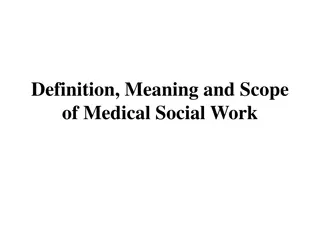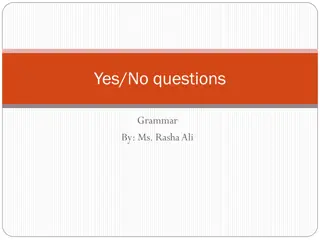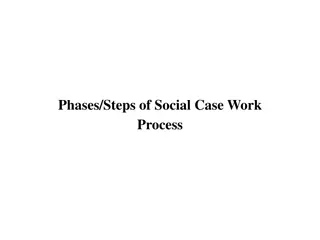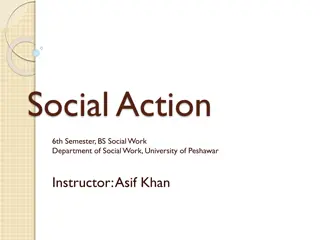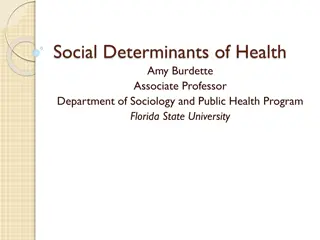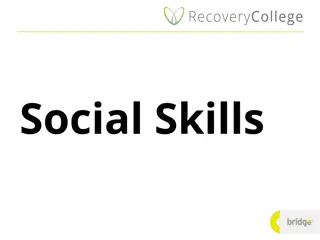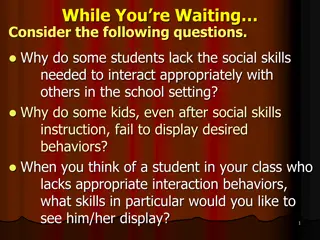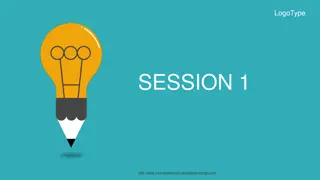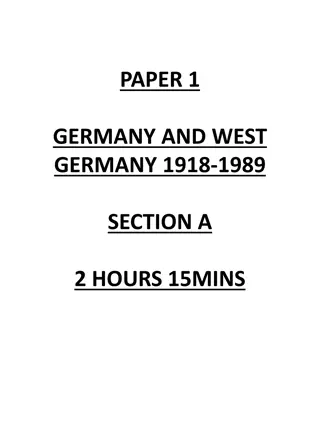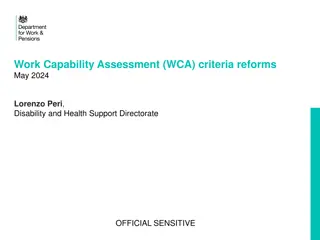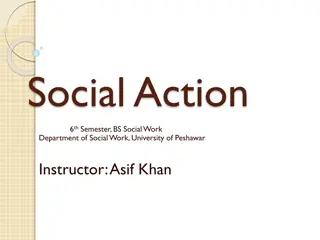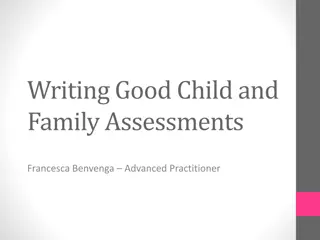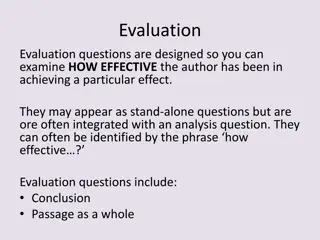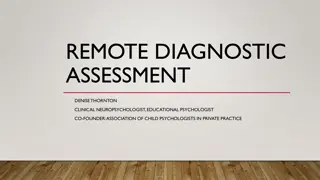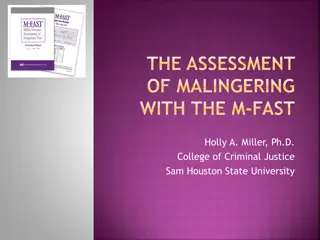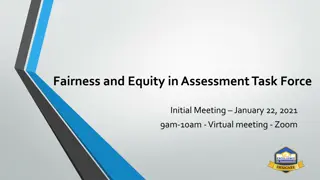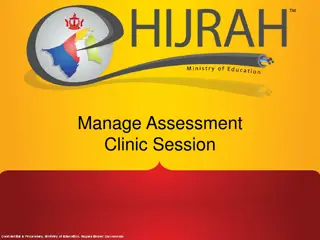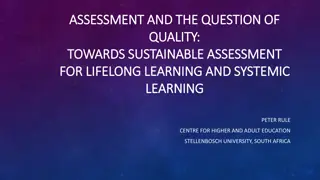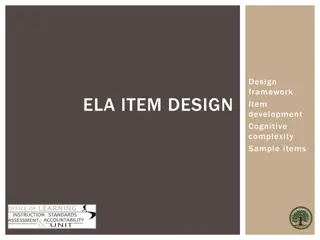Social Work Assessment Questions Guide
Dive into the world of social work assessments with this comprehensive guide. Learn about the key categories, question types, and how to gather essential information effectively. Understand the importance of open-ended questions and explore sample questions related to various aspects of social work assessments.
Download Presentation

Please find below an Image/Link to download the presentation.
The content on the website is provided AS IS for your information and personal use only. It may not be sold, licensed, or shared on other websites without obtaining consent from the author. Download presentation by click this link. If you encounter any issues during the download, it is possible that the publisher has removed the file from their server.
E N D
Presentation Transcript
AGS Social Work Assessment Questions
Questions for Social Questions for Social Work Assessment Work Assessment AGS AGS Social Work Social Work Assessment Questions Assessment Questions Social work assessments require collection of a wide range of data about an individual s life and circumstances with a goal of helping them with a positive outcome. This guide includes some of the basic questions that drill down into these details. Tool Tool AGS
Social Work Assessment Questions Overview While each assessment and the questions asked will vary according to the client s situation and individual needs, we ve categorized potential general questions to use with social work assessment tools. These sample questions are based upon the five key categories of the System model, which covers the areas of: Situation Safety Survival/other needs Supports/strengths Short-term or crisis
Open-Ended vs. Close-Ended Questions When doing a social work evaluation, you want to gather as much information from the subject as possible. How you phrase social work assessment questions is important, because if they re worded the right way, they invite a fuller answer than just yes or no. Use open-ended questions to invite more detailed responses. Question types: Closed-ended: Are you feeling better today? (client can give a yes/no answer) Open-ended: How are you feeling today? (invites client to elaborate more)
Situation Questions What brought you here today? When did this situation first begin? Questions to identify the situational elements that caused the client to seek help. How does your living situation make you feel? Has this happened before? Have you sought help for this issue in the past? How frequently does this occur in your life? Have you told others about this situation?
Safety Questions Are you in immediate danger of physical harm? Do you have any restraining orders in place? Questions to identify if the client is in a crisis/safety situation that requires immediate help. How do you feel about your current level of safety? Describe any injuries you ve had as a result of this situation. Where would you be if you hadn t come in today? Where will you be going after you leave here today? Do you have a safe place to stay?
Survival/Other Needs Questions Describe what you ve eaten in the last three days. Where are you living right now? How have you managed to survive thus far? Questions designed to identify if the client currently has basic living needs being met. What are your biggest concerns in the coming week? What do you think you could do to improve your situation? How can I help? Where will you be sleeping tonight?
Supports/Strengths Questions What resources do you have that you can rely on? What associations, organizations, or groups have been especially helpful to you in the past? Questions to find what supports the client has or if they ve overcome this issue before. Describe your family and friends support system. How did you overcome this problem in the past? Describe the course of a day when this issue isn t occurring. What s different? What is one positive step you can take away from this issue/situation?
Short-Term or Crisis Questions Are you in fear for your life at this moment? What will happen tomorrow if you haven t yet resolved this today? What happens to you if this issue isn t addressed this week? Questions designed to uncover how immediate the need is for the client. How have you been feeling? Describe any recent health issues you ve had. When is the last time you ve seen a doctor? How do you feel about yourself right now?
Conclusion These social work assessment questions are designed to get you started thinking about the scope of the questions you ll need for a social work client assessment. You can find further information on social work assessments, as well as many other types of assessments, at Airiodion.com. Need Help with Need Help with Social Work Social Work Assessments? Assessments? Check out our Social Work Assessment & Planning Toolkit for an assessment template for social workers with built-in analytics and task checklist that gives you a place for planning and managing your social work engagements Contact us any time with questions at: Airiodion.com/ contact-us/




